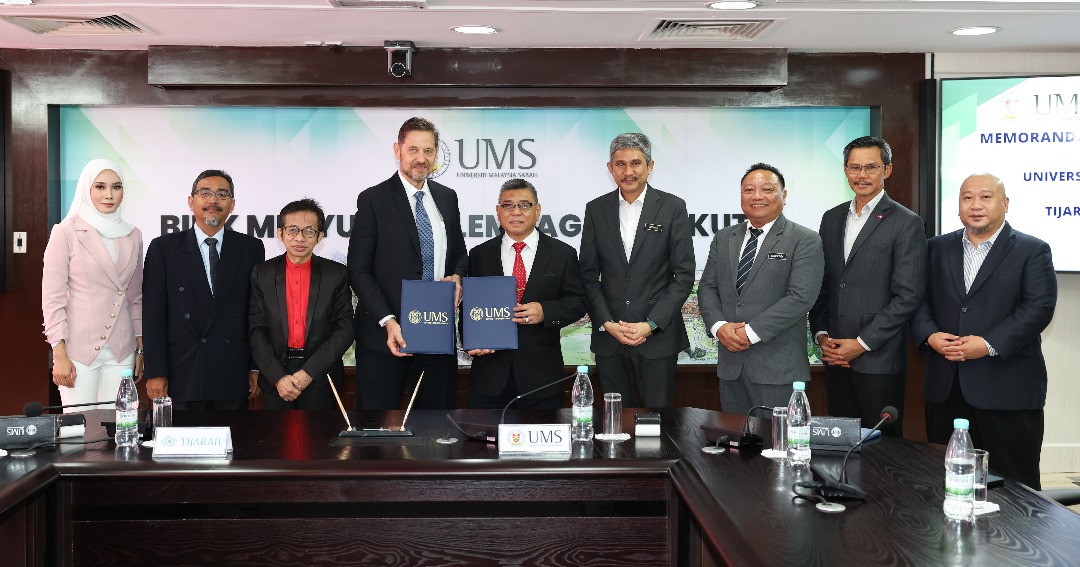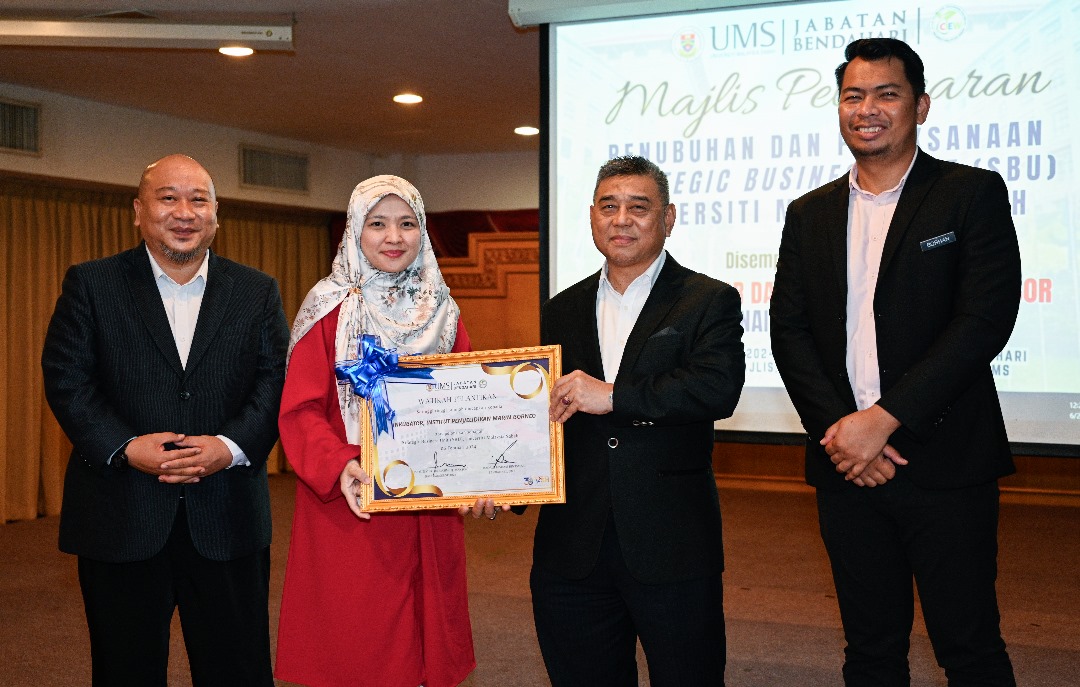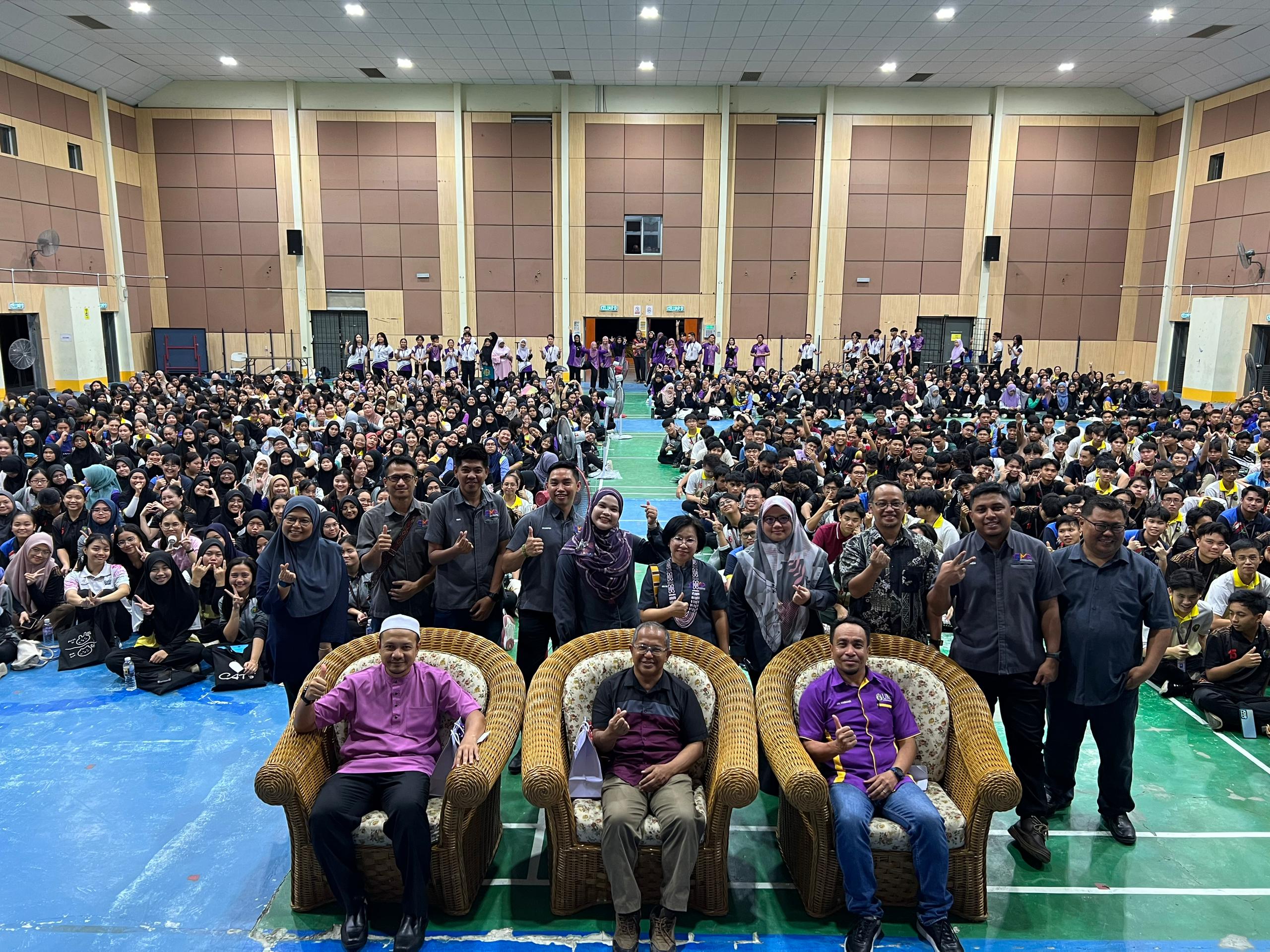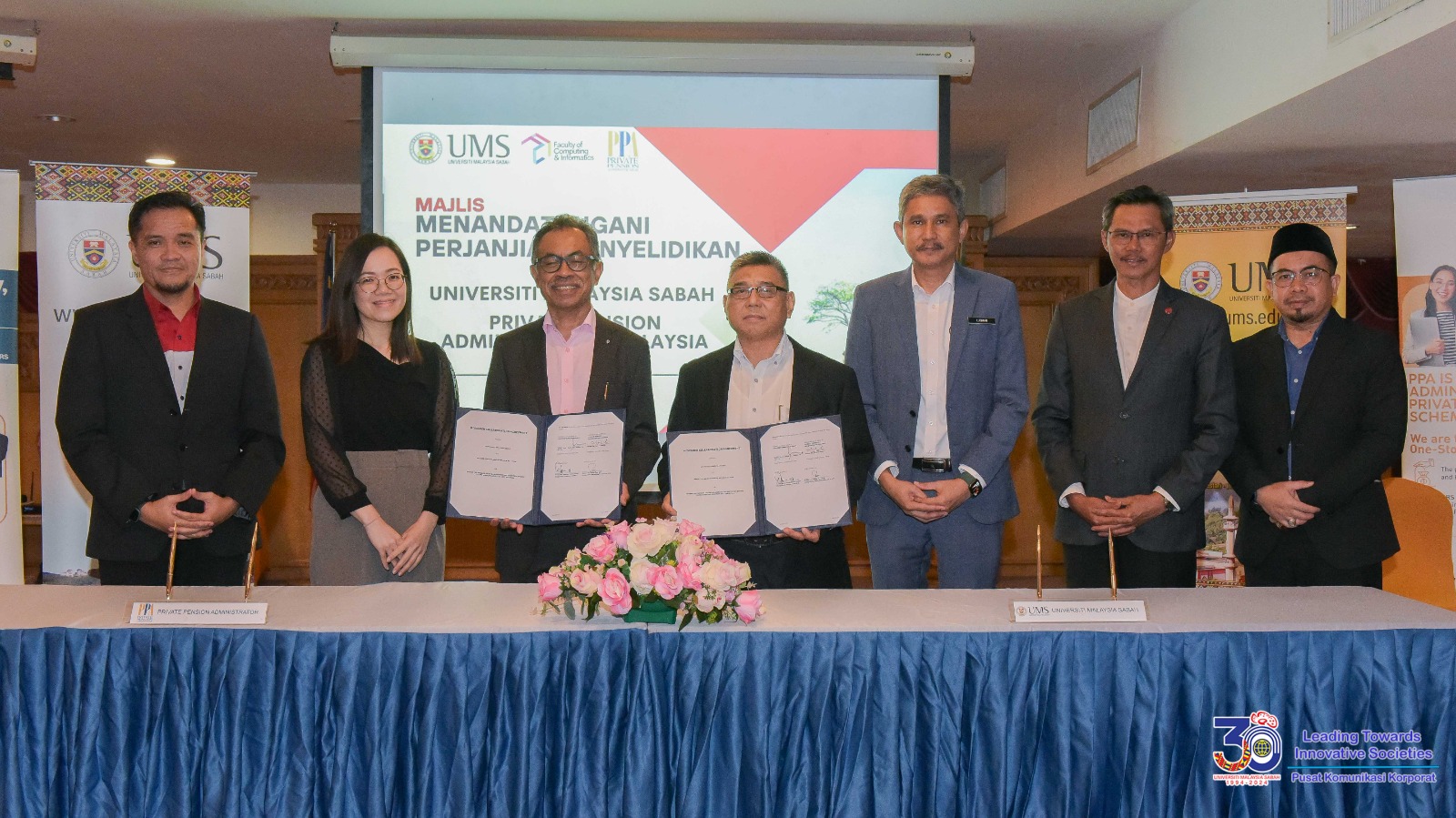- Hits: 943
UMS Signs MoU with Tijarah Holding Ltd to Boost Blockchain and Fintech Knowledge Among Students

Universiti Malaysia Sabah (UMS) has formalized a Memorandum of Understanding (MoU) with Tijarah Holding Ltd, a shariah-compliant blockchain development institution, to equip students with knowledge in financial technology (fintech), particularly blockchain.
The MoU was signed in a ceremony at the UMS Chancellery Building earlier today.
UMS Vice-Chancellor, Prof. Datuk Dr. Kasim Hj. Mansor, signed on behalf of the university, while Tijarah Holding Ltd was represented by its CEO, John Joseph Pellegrini.
During the ceremony, Prof. Kasim emphasized the rapid growth of fintech in Malaysia, driven by increasing demand from the tech-savvy Islamic majority population.
“Industry reports indicate robust growth in Malaysia’s fintech landscape, with over 300 fintech companies operating in various categories such as e-wallets, payments, lending, wealthtech, insurtech, and blockchain or cryptocurrency,” he stated.
He highlighted the expanding use of blockchain across industries and its potential to benefit Islamic financial institutions, aligning with zakat objectives.
Research on the potential of blockchain technology in enhancing Islamic financial management systems is growing. However, he noted a lack of focus on integrating this technology into Islamic financial management to make it functional.
“Much research focuses on countries like Indonesia. While Malaysia has seen growth in this area, in-depth studies remain limited.
“The Islamic finance sector in Malaysia still faces challenges, such as a lack of data on state-level websites and ineffective communication on social media platforms.
“This indicates the need for a better Islamic financial management system in Malaysia for user convenience,” he added.
Prof. Kasim also stressed the importance of human capital development to support fintech growth.
“In response, UMS is taking proactive steps by signing this MoU to contribute to human resource development in line with the university’s role as a higher education institution in Sabah.
“Collaboration with industry players allows universities to expose students to current practices and understanding in blockchain and fintech,” he said.
The ceremony was attended by Prof. Dato’ Dr. Jayles Yeoh, Tijarah Holding’s Head of Educational Development; UMS Deputy Vice-Chancellor for Student and Alumni Affairs, Prof. Madya Dr. Raman Noordin; UMS Registrar, Luqman Ridha Anwar; UMS Treasurer, Badrul Hisham Ismail; Dean of the Faculty of International Finance Labuan, Prof. Madya Dr. Geoffrey Harvey Tanakinjal; and Tijarah Holding’s Business Development Executive, Shahirah Sundu.





 In a significant move to bolster pension saving awareness among young working adults in East Malaysia, University Malaysia Sabah (UMS) has signed a Research Collaboration Agreement with Private Pension Administrator Malaysia (PPA).
In a significant move to bolster pension saving awareness among young working adults in East Malaysia, University Malaysia Sabah (UMS) has signed a Research Collaboration Agreement with Private Pension Administrator Malaysia (PPA). Universiti Malaysia Sabah (UMS) together with Department of Higher Learning (JPT) Ministry of Higher Education (KPT), United Nations Educational, Scientific and Cultural Organisation (UNESCO) and Malaysian Council for Public higher Learning Institutions (MEIPTA) successfully organized Malaysian Inclusive Open Educational Resources (iOER) Virtual Showcase 2023 recently.
Universiti Malaysia Sabah (UMS) together with Department of Higher Learning (JPT) Ministry of Higher Education (KPT), United Nations Educational, Scientific and Cultural Organisation (UNESCO) and Malaysian Council for Public higher Learning Institutions (MEIPTA) successfully organized Malaysian Inclusive Open Educational Resources (iOER) Virtual Showcase 2023 recently.